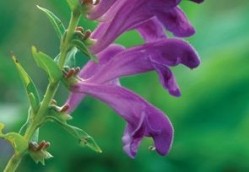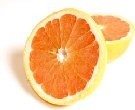ABC: Why is skullcap still being adulterated with germander?

In the article, published in the ABC’s journal Herbalgram, the author Steven Foster says the issue has “plagued” the industry for decades.
“This adulteration problem has been known for over 25 years, and one would think that the possibility of liability and litigation alone would have prompted this continuing problem to cease, especially in light of the fact that numerous chemical analytical methods have been published, along with simple macroscopic, microscopic, and botanical methods all readily available to laboratories and the herb trade.”
Skullcap falsely implicated in liver dysfunction cases
Skullcap (Scutellaria lateriflora, Lamiaceae), a native American plant which has been used for centuries as a mild sedative and ‘nerve tonic’, hit the headlines in the 1990s for all the wrong reasons when some herbal products claiming to contain it were associated with liver dysfunction.
Analyses later revealed the source of problem was in fact European germander (Teucrium chamaedrys), a known skullcap adulterant, said Foster.
Commercial supplies of skullcap were also reported to contain Teucrium canadense (also known as American germander, wild germander, wood sage, wild basil and pink skullcap) throughout the 1980s and 1990s, he said.
2011 study revealed only 5 out of 13 skullcap supplements had measurable amount of true skullcap
However, in a study published last year in Analytical and Bioanalytical Chemistry, researchers at USDA's Food Composition and Methods Development Laboratory in Maryland found that germander was still being used in skullcap supplements more than a decade later.
In fact, only five out of 13 skullcap-containing dietary supplements purchased over the internet had a measurable amount of true skullcap, reported the 2011 study.
Four contained potentially toxic American germander (Teucrium canadense); three contained very low concentrations of skullcap and one contained Chinese skullcap, Scutellaria baicalensis, rather than the American species (S. lateriflora).
Blumenthal: Disappointed
While skullcap and germander look similar, there was no excuse for confusing the two, said ABC founder and executive director Mark Blumenthal.
"In 2010 and 2011, I gave about a dozen speeches about adulteration problems in the global herb market, and I referred to the skullcap-germander problem as an example of a former problem.
"However, I was disappointed to read the report from the USDA scientists this past summer showing that skullcap is still being adulterated with germander.”
Firms keen to ensure they are using the genuine article are advised to consult the 2009 American Herbal Pharmocopeia (AHP) skullcap monograph, which includes an extensive discussion of adulterants, chromatograms on authentication, plus an explanation of morphological and chemical differences between S. lateriflora and Teucrium species.
Click here to read the ABC article.














